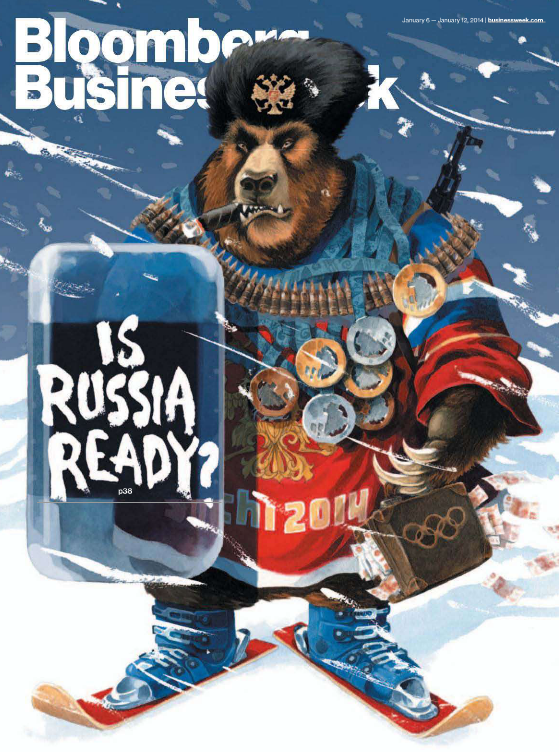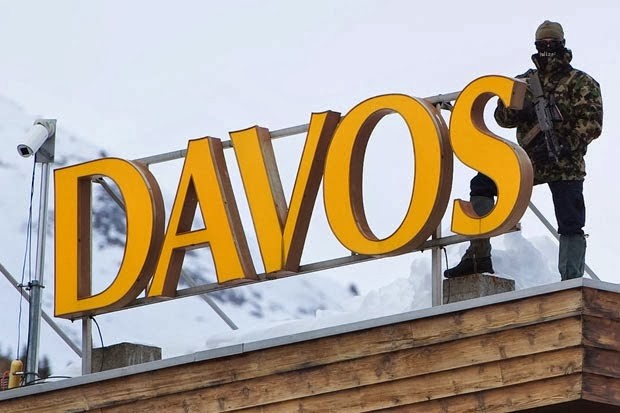At Davos the State of Globalization in 2014
Post on: 16 Март, 2015 No Comment

Photograph by Gianluca Colla/Bloomberg
Davos, Switzerland, on Jan. 13
If globalization has a spiritual home, it’s Davos, the Swiss ski resort that will play host to a who’s who of the planet’s decision-makers from Jan. 22 to 25. The annual meeting of the World Economic Forum is devoted to “improving the state of the world,” with the ever-present subtext that more integration is better. Davos Man’s abiding belief that those two goals are compatible has taken a beating in recent years. The financial crisis that struck in 2008 raised serious questions about whether globalization had become more of a threat than a boon. We learned the hard way that the world financial system had become like an electrical grid in which a single tree falling across a high-tension line could cause blackouts of homes and businesses hundreds of miles away.
Today, even as the Great Recession recedes from memory, its ravages are visible. Prior to the crisis, global commerce was growing twice as fast as global economic output, says Bhanu Baweja, who heads emerging-market cross-asset strategy at UBS (UBS ). Trade plummeted after the crisis and is only now regaining momentum. Cross-border capital flows are 60 percent of what they were before the meltdown, according to the McKinsey Global Institute. Charles Collyns, who was assistant U.S. Treasury secretary for international finance until joining the Institute of International Finance as chief economist last year, puts it bluntly: “Globalization has stalled.”
That’s not the line that the WEF’s organizers will be broadcasting. “The people in Davos are looking forward, not backward,” says Robert Greenhill,a former executive and consultant from Canada who’s now chief business officer of the forum. Still, the stresses of the wider world are sure to find their way into the forum’s meeting halls. Talk of currency war is in the air, while China and Japan are skirmishing in the East China Sea. In the U.S. trade is taking some of the blame for the hot-button issue of the year: inequality. Emerging markets such as Brazil and Turkey have swooned over the Federal Reserve’s plans to cut back bond purchases. Global banks complain that regulators are balkanizing finance by requiring each local unit to have the capital to stand on its own. Snooping by the U.S. National Security Agency (NSA) has caused hard feelings among allies and rivals alike.
Without violating trade rules, countries have found ways to close borders. Australia now bans overseas storage of electronic health records. Argentina requires foreign luxury automakers to offset their imports of cars with exports of local products, such as malbec wine, all in the name of “trade balancing.” “What we’re moving toward is a system which on paper is open, but beneath the surface is increasingly distorted by all kinds of subsidies and buy-local provisions,” says Simon Evenett, professor of international trade at the University of St. Gallen in Switzerland. Investment controls and antitrust rules are sometimes “intimidating people from doing cross-border deals because of risks today that didn’t exist before,” says Thomas Vinje, chairman of the global antitrust practice in the Brussels office of Clifford Chance, a U.K. law firm.
Progress on the free movement of people and information is also being stymied. A lobbying coalition that included General Electric (GE ) and Google (GOOG ) failed to get Congress to ease immigration limits last year despite arguments that American companies can’t find enough tech workers. Financial hubs such as Singapore and the U.K. are making it harder for companies to hire foreigners following domestic protests. “Policies to promote more immigration into the advanced economies are going to be a hard sell until unemployment rates drop,” according to the “Depth Index of Globalization 2013,” a 276-page study by IESE, the graduate business school of the University of Navarra in Spain. Meanwhile, the NSA’s Prism spying scandal has hurt U.S. suppliers of cloud computing as countries opt to keep data in home-based clouds.
In a report to clients last year, Joachim Fels, Morgan Stanley’s (MS ) chief international economist, warned that 2014 could be a repeat of 1914, which brought an abrupt end to the first golden era of globalization. Wrote Fels: “I do worry about a creeping trend towards a de-globalization of economic activity and capital flows.”
The view from Davos, though, is that all is not lost. Trade talks are the most important countertrend. With little notice from protesters, negotiators are making progress toward the Trans-Pacific Partnership on one side of the world and the Transatlantic Trade and Investment Partnership on the other, as well as a fledgling U.S.-China investment treaty. Agreement on trade-streamlining measures was reached at the World Trade Organization’s ministerial meeting in Bali on Dec. 7. A study by consulting firm Bain presented at Davos last year, which inspired the Bali pact, concluded that eliminating discriminatory regulations and other barriers to global supply chains could boost world gross domestic product six times as much as doing away with all tariffs.

“I think 2013 was the most positive year for U.S. trade policy in at least 20 years and maybe even in the entire postwar period,” says Fred Bergsten, a founder and senior fellow of the Peterson Institute for International Economics. Bergsten, 72, has been working on trade since 1969, the year he joined the Nixon White House as Henry Kissinger’s economics deputy. The Pacific and Atlantic trade deals, if completed and ratified, “would amount to the largest trade liberalization, from a negotiating process, in the history of mankind,” Bergsten adds.
The importance of the negotiations is bolstered by Bergsten’s bicycle theory of trade liberalization, which says that if trade talks aren’t moving forward, they tip over like a wobbly bike. Negotiators recognize that and are fighting to keep the bicycle moving. “We have to fight off a relapse into protectionism,” says Bergsten.
On the whole, globalization has paid off big for the developing world, helping lift hundreds of millions of Chinese, Indians, and others out of poverty. Trade and investment between developing nations are on the rise, and emerging countries are investing in rich ones. According to data compiled by Bloomberg, mergers-and-acquisitions deals in which Brazil, Russia, India, and China invested in Western Europe and North America grew 22 percent from 2010 to 2013, even as M&A in the other direction shrank 36 percent.
In Davos, panelists will discuss ways to protect worker rights, stop deforestation, curb global warming, and root out corruption. The presence of so many movers and shakers in one village makes the forum a catalyst for action. The GAVI Alliance for childhood vaccinations was formally launched at Davos in 2000, with support from Microsoft (MSFT ) Chairman Bill Gates.
The return to stronger economic growth in the U.S. Europe, and Japan is a mixed blessing for globalization. Peter Blair Henry, dean of New York University’s Stern School of Business, says he detects schadenfreude over the struggles of some emerging nations: “Even amongst the educated elite there’s this idea about the global economy as a series of zero-sum scorecards.”
If prosperity boosts countries’ receptivity to more trade in goods and services, it’s positive, says former Mexican President Ernesto Zedillo, a Davos regular who is director of the Yale Center for the Study of Globalization. It’s bad, he says, if it leads to “complacency” about the need to fix budgets and address the root causes of the financial crisis. The big thinkers in Switzerland will be trying, once again, to get the good of globalization without the bad.














